BMW X1 vs CUPRA Formentor - Differences and prices compared
Compare performance (326 HP vs 333 HP), boot space and price (38200 £ vs 35200 £ ) at a glance. Find out which car is the better choice for you – BMW X1 or CUPRA Formentor?
Costs and Efficiency:
Looking at overall running costs, both models reveal some interesting differences in everyday economy.
CUPRA Formentor has a slight advantage in terms of price – it starts at 35200 £ , while the BMW X1 costs 38200 £ . That’s a price difference of around 2987 £.
Fuel consumption also shows a difference: CUPRA Formentor manages with 1.40 L and is therefore clearly more efficient than the BMW X1 with 2.50 L. The difference is about 1.10 L per 100 km.
As for electric range, the CUPRA Formentor performs clearly perceptible better – achieving up to 126 km, about 45 km more than the BMW X1.
Engine and Performance:
Power, torque and acceleration are the classic benchmarks for car enthusiasts – and here, some clear differences start to show.
When it comes to engine power, the CUPRA Formentor has a barely noticeable edge – offering 333 HP compared to 326 HP. That’s roughly 7 HP more horsepower.
In acceleration from 0 to 100 km/h, the CUPRA Formentor is slightly quicker – completing the sprint in 4.80 s, while the BMW X1 takes 5.40 s. That’s about 0.60 s faster.
In terms of top speed, the CUPRA Formentor performs barely noticeable better – reaching 250 km/h, while the BMW X1 tops out at 233 km/h. The difference is around 17 km/h.
There’s also a difference in torque: BMW X1 pulls to a small extent stronger with 477 Nm compared to 420 Nm. That’s about 57 Nm difference.
Space and Everyday Use:
Cabin size, boot volume and payload all play a role in everyday practicality. Here, comfort and flexibility make the difference.
Both vehicles offer seating for 5 people.
In curb weight, CUPRA Formentor is hardly perceptible lighter – 1434 kg compared to 1575 kg. The difference is around 141 kg.
In terms of boot space, the BMW X1 offers a bit more room – 540 L compared to 450 L. That’s a difference of about 90 L.
In maximum load capacity, the BMW X1 performs slight better – up to 1545 L, which is about 40 L more than the CUPRA Formentor.
When it comes to payload, CUPRA Formentor slight takes the win – 526 kg compared to 500 kg. That’s a difference of about 26 kg.
Who wins the race in the data check?
The CUPRA Formentor holds a decisive overall lead in the objective data comparison.
This result only shows which model scores more points on paper – not which of the two cars feels right for you.
Costs and Consumption
View detailed analysis
Engine and Performance
View detailed analysis
Dimensions and Body
View detailed analysis
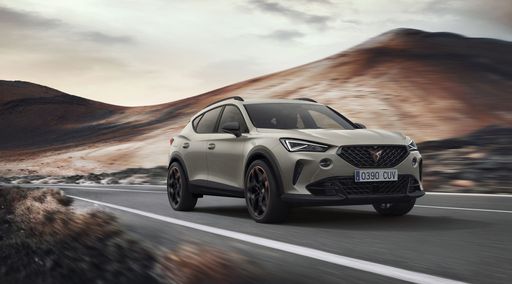
CUPRA Formentor
BMW X1
The BMW X1 brings a premium feel to compact crossover life, wrapping practical space and agile handling into a tidy, upscale package. It’s ideal for buyers who want BMW driving dynamics without the bulk, offering everyday comfort and a few clever tricks to keep the commute interesting.
details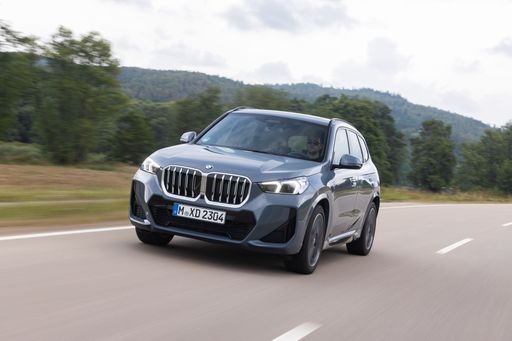
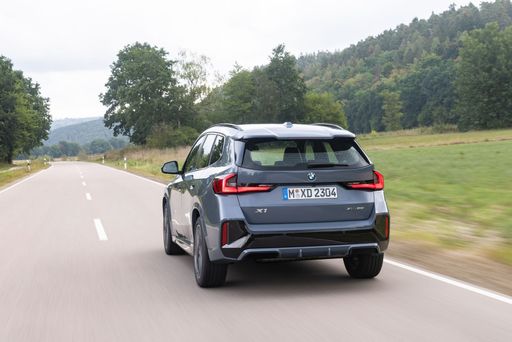
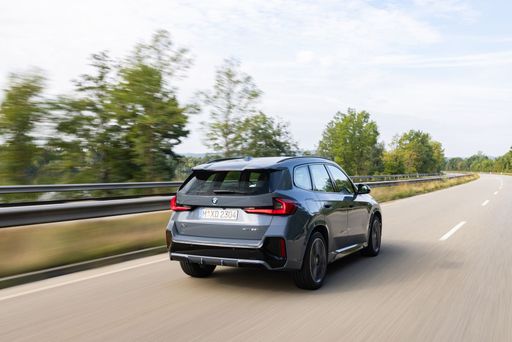
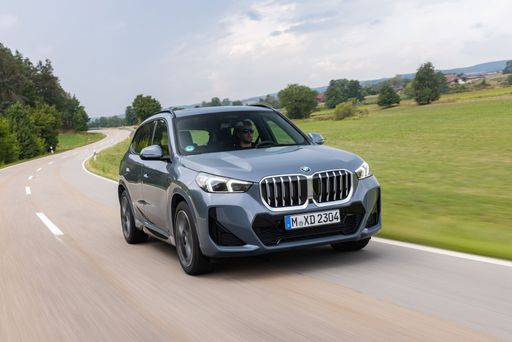
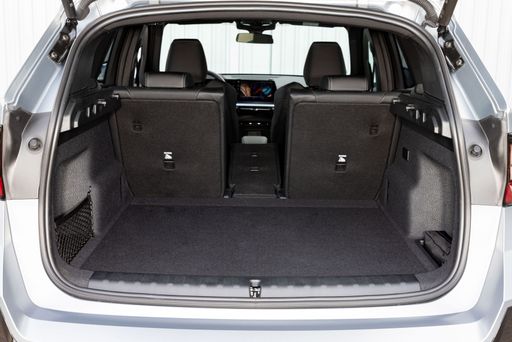
CUPRA Formentor
With coupe-like lines and a muscular stance the Cupra Formentor blends sporty drama with everyday sense, so it looks like it’s in motion even at a standstill. Inside and out it’s tuned for drivers who want engaging handling and a grown-up cabin — practical enough for daily life, playful enough to make the commute feel like a short track session.
details
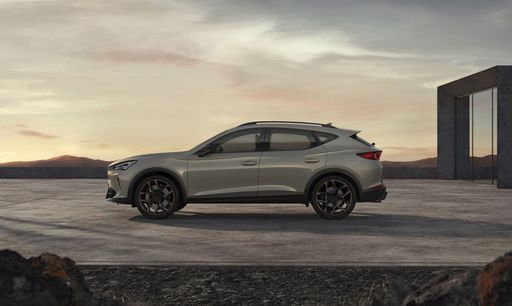
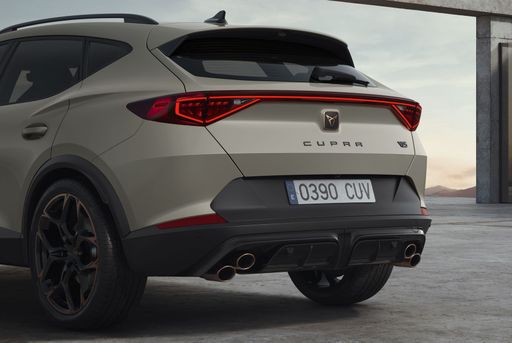
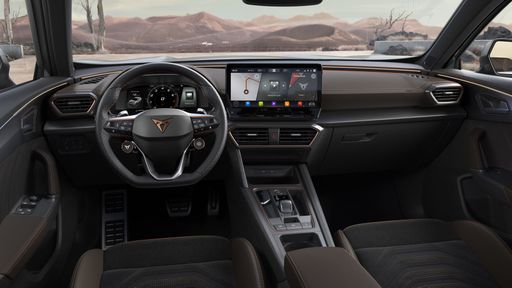
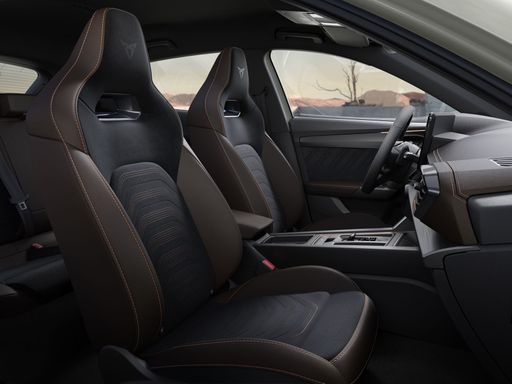
Costs and Consumption |
|
|---|---|
|
Price
38200 - 55500 £
|
Price
35200 - 55000 £
|
|
Consumption L/100km
2.5 - 7.7 L
|
Consumption L/100km
1.4 - 8.8 L
|
|
Consumption kWh/100km
-
|
Consumption kWh/100km
-
|
|
Electric Range
81 km
|
Electric Range
117 - 126 km
|
|
Battery Capacity
14.20 kWh
|
Battery Capacity
19.70 kWh
|
|
co2
57 - 175 g/km
|
co2
32 - 199 g/km
|
|
Fuel tank capacity
47 - 54 L
|
Fuel tank capacity
40 - 55 L
|
Dimensions and Body |
|
|---|---|
|
Body Type
SUV
|
Body Type
SUV
|
|
Seats
5
|
Seats
5
|
|
Doors
5
|
Doors
5
|
|
Curb weight
1575 - 1935 kg
|
Curb weight
1434 - 1742 kg
|
|
Trunk capacity
490 - 540 L
|
Trunk capacity
345 - 450 L
|
|
Length
4500 mm
|
Length
4451 mm
|
|
Width
1845 mm
|
Width
1839 mm
|
|
Height
1630 - 1642 mm
|
Height
1511 - 1537 mm
|
|
Max trunk capacity
1495 - 1545 L
|
Max trunk capacity
1415 - 1505 L
|
|
Payload
490 - 500 kg
|
Payload
458 - 526 kg
|
Engine and Performance |
|
|---|---|
|
Engine Type
Diesel MHEV, Petrol MHEV, Petrol, Diesel, Plugin Hybrid
|
Engine Type
Petrol, Petrol MHEV, Diesel, Plugin Hybrid
|
|
Transmission
Automatic
|
Transmission
Automatic, Manuel
|
|
Transmission Detail
Dual-Clutch Automatic
|
Transmission Detail
Dual-Clutch Automatic, Manual Gearbox
|
|
Drive Type
Front-Wheel Drive, All-Wheel Drive
|
Drive Type
All-Wheel Drive, Front-Wheel Drive
|
|
Power HP
136 - 326 HP
|
Power HP
150 - 333 HP
|
|
Acceleration 0-100km/h
5.4 - 9.2 s
|
Acceleration 0-100km/h
4.8 - 9 s
|
|
Max Speed
190 - 233 km/h
|
Max Speed
210 - 250 km/h
|
|
Torque
230 - 477 Nm
|
Torque
250 - 420 Nm
|
|
Number of Cylinders
3 - 4
|
Number of Cylinders
4
|
|
Power kW
100 - 240 kW
|
Power kW
110 - 245 kW
|
|
Engine capacity
1499 - 1998 cm3
|
Engine capacity
1498 - 1984 cm3
|
General |
|
|---|---|
|
Model Year
2024 - 2025
|
Model Year
2024 - 2025
|
|
CO2 Efficiency Class
D, E, F, B
|
CO2 Efficiency Class
G, E, D, F, B
|
|
Brand
BMW
|
Brand
CUPRA
|
Is the BMW X1 offered with different drivetrains?
The BMW X1 is offered with Front-Wheel Drive or All-Wheel Drive.




